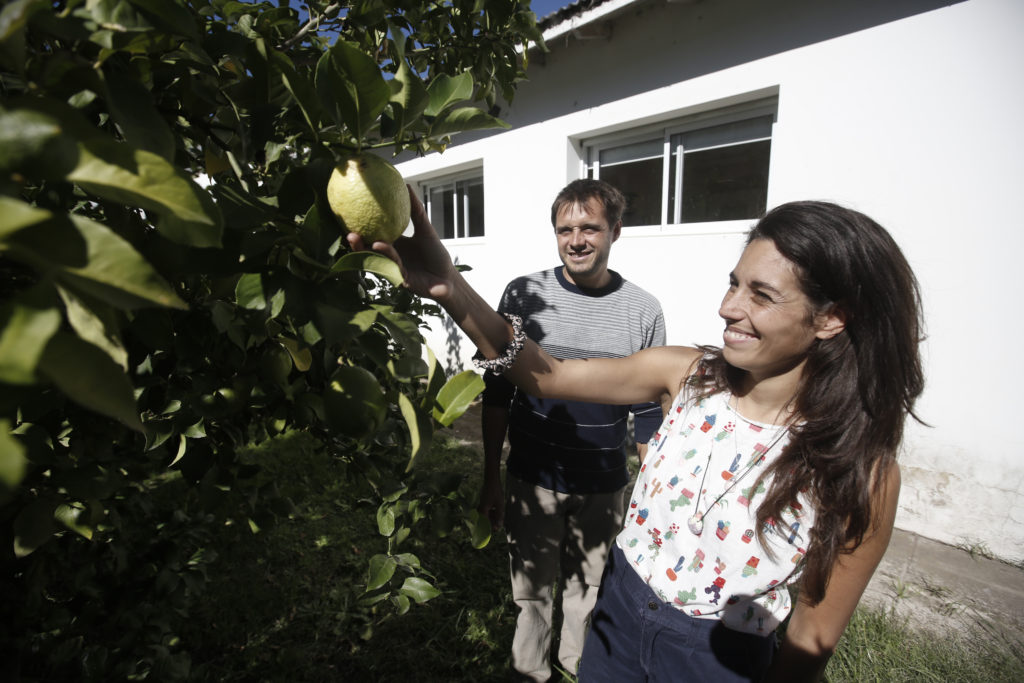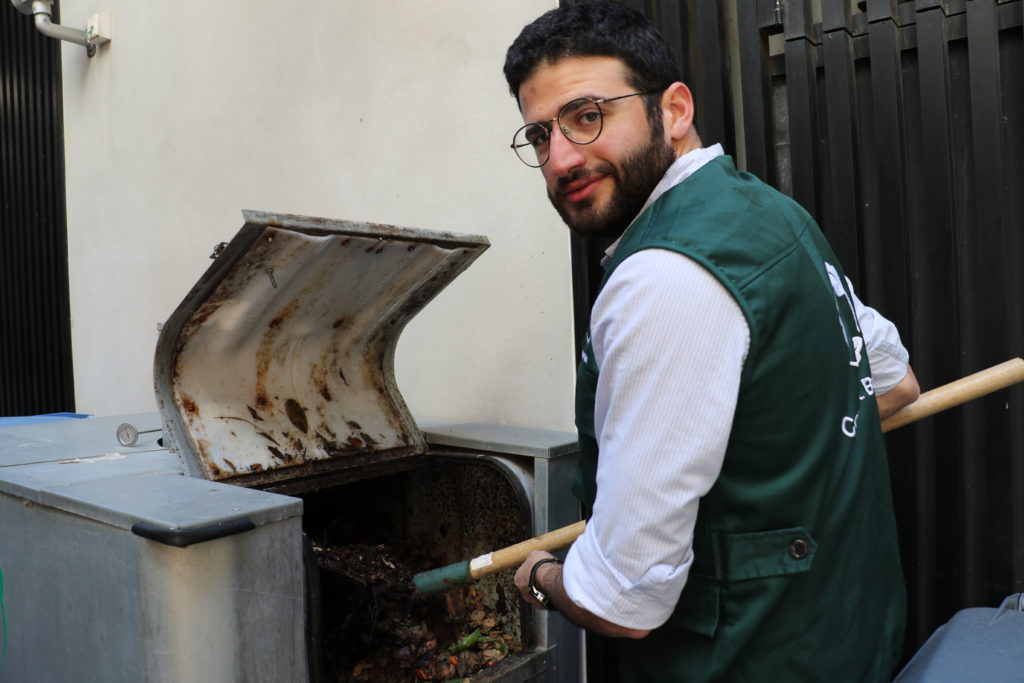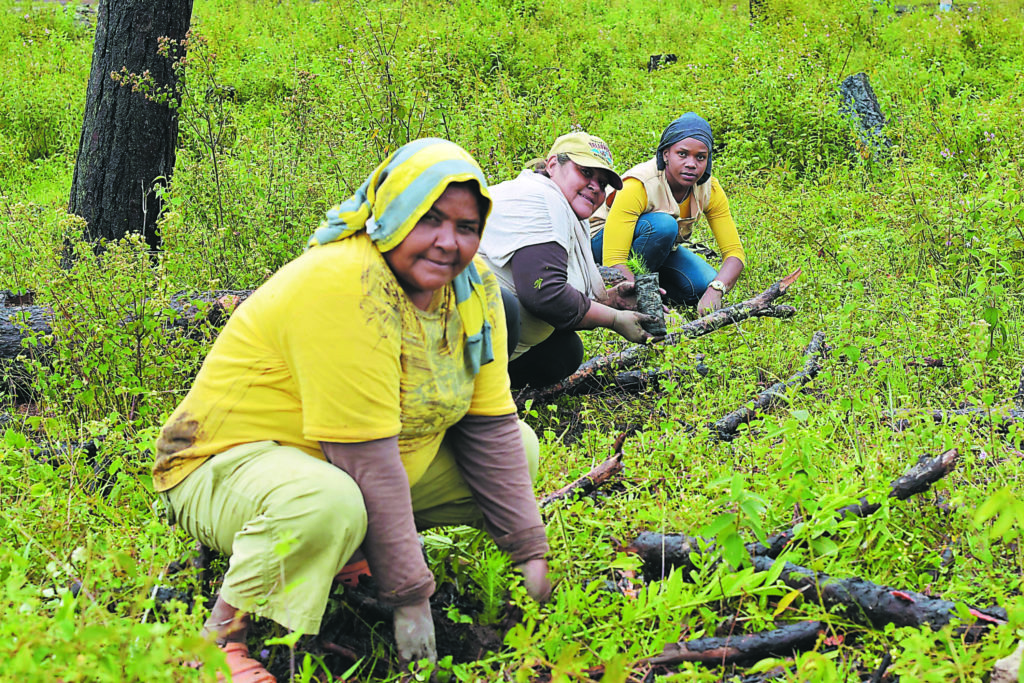3 initiatives that are cleaning our soils
“Soil pollution affects the food we eat, the water we drink, the air we breathe, and the health of our ecosystems,” said FAO Deputy Director-General Maria Helena Semedo “It impacts food security both by impairing plant metabolism and thus reducing crop yields, as well as by making crops unsafe for consumption. Pollutants also directly harm organisms that live in soil and make it more fertile.” Discover three projects in Argentina, Honduras and Lebanon that are fighting these pollutants with trees, compost and sweeteners #EarthBeats.
Necochea Ciudad Frutal : filling the sidewalks of a small Argentine city with fruit trees.
Six years ago, two friends, Juan García and Eugenia Podlesny, decided to change their eating habits and also the reality of the coastal town of Necochea, an area surrounded by soybean fields. They wanted to eat organic fruits, without pesticides which can be quite a challenge in Argentina. They decided to plant different fruit trees in the streets and soon, the town’s sidewalks were bursting with some 500 fruit trees that have been planted in public spaces so far. Today they have a community fruit garden in the Emilio Ferreyra Municipal Hospital of Necochea, which they supply with organic food. They also teach children how to work the land and to cook their own meals. Their goal is to give every neighbor the opportunity to eat local, organic and healthy products without any cost, simply taking the fruits from the trees in the sidewalk. Read more in The Nation (in English) and in La Nación (in Spanish).

Compost Baladi : Composting Lebanese organic waste to avoid a new waste crisis
According to a 2014 report published by Sweepnet, only 15 percent of the waste produced in Lebanon is composted, 8 percent recycled, while 29 percent ends up in illegal garbage pits. Composting is a major challenge in Lebanon as more than 50% of the country’s waste is organic. A social enterprise, Compost Baladi, has been working since 2017 on the massification of composting (transformation of organic waste into soil fertilizer) with municipalities, companies and individuals. Its two co-founders, Marc Aoun and Antoine Abou Moussa, provide the know-how to as many people as possible, with a solution adapted to each case. In particular, they help municipalities adopt simple solutions to transform their waste, previously incinerated or landfilled, into compost. Read the complete article in The Hindu, Haaretz (in English) and L‘Orient Le Jour (in French).

Using agroforestry to make Honduran traditional pancake syrup panela
Since 2018, an agroforestry cooperative, named Chabosuji, in the municipality of Cantarranas has found a sweet way to take care of the environment. They use an innovative agroforestry mechanism, called trapiche ecológico (“ecological mill”), to produce Honduran traditional honey syrups for pancakes and doughnuts, panela. They use dry cane bagasse, or dry cane residue, for the fire rather than wood making the syrup without cutting down a single tree, minimizing the release of carbon dioxide and fine particles into the air. Chabosuji operates with the support of the Climate Change Adaptation Programme in the Forest Sector (CLIFOR). “The trapiche ecológicoinitiative shows us how climate, agriculture and forestry can converge. We are extremely happy to see that Chabosuji is creating jobs and producing eco-friendly and sustainable products”said CLIFOR’s national coordinator, Mario Martínez. Discover the initiative in Yicai Global, The Hindu, and The Nation. Most types of debt are suitable for refinancing. But you are the one who decides which debts to include in the new loan. This means that you must first make a clear overview of what you have on the side of your finances. For many, the refinancing application also means renewing the economy. Make a table in which you list the various records. Enter the name of the lender with the loan number. Then you enter the outstanding debt, the remaining term, the interest rate, and the amount you must pay at least once a month.


While citizens mobilize for Earth Day, 18 media outlets investigate local initiatives against pollution and waste. The collaborative editorial operation Earth Beats gathers renowned newspapers: including Le Figaro, Corriere, Haaretz, L’Economiste, La Nacion, Yicai Global, Delo, L’Orient Le Jour, The Philippine Star and The Hindu and more. The operation is coordinated by Sparknews with the support of ADEME, the UNESCO MAB Programme, Le Jour de La Terre, Impact Hub and CDC Biodiversité.
You, readers, citizens, leaders, investors, consumers, can broadcast these solutions, so that tomorrow’s world remains sustainable.





